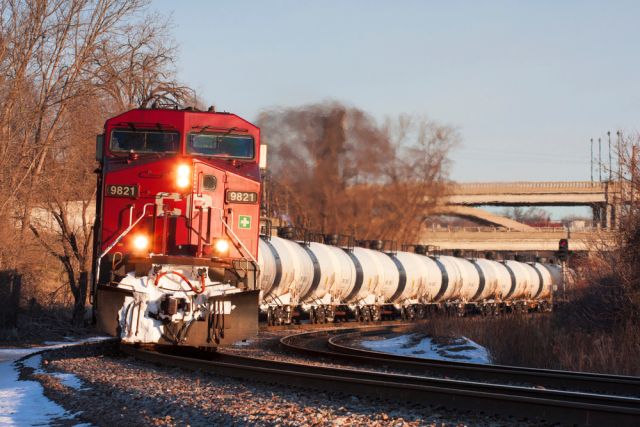
On Aug. 21, CNI and fellow freight company CPKC (CP) initiated a lock-out of workers, who had threatened to strike in protest of safety regulations and scheduling issues. (Source: Shutterstock)
A year of failed negotiations between Canadian rail companies and their union ended with a strike on Aug. 22, which then seemed to end after one day when the government stepped in.
As of the second day, however, the rail workers union said it wasn’t finished.
According to reports, the work stoppage is not fully over. The Teamsters Union plans to challenge the government’s action and has informed the companies involved that it’s moving forward with the strike.
“Please find this letter as official notice to the company our intention to withdraw the services of our combined membership of approximately 6,500 members,” read the note sent Aug. 23 by the Teamsters Canada Rail Conference to rail freight company Canadian National Railway (CNI).
The letter gave the legally required 72-hour warning of the strike, which is now officially set to start Aug. 26. The note went on to state that the union remained available for negotiations.
The note was the latest in a series of rapid developments since the deadline passed.
On Aug. 21, CNI and fellow freight company CPKC (CP) initiated a lock-out of workers, who had threatened to strike in protest of safety regulations and scheduling issues.
On Aug. 22, Canadian Labor Minister Steven MacKinnon said the railroad strike was a threat to the economy of Canada. The world’s second-largest country is sparsely populated and relies heavily upon its railways to connect distant cities and trading ports.
Under Canada’s labor code, MacKinnon ordered binding arbitration. The law requires a third, independent party to assist with mediation, the railways to resume service and the collective bargaining currently in place to be extended until negotiations end.
Canada Industrial Relations Board (CIRB) is the third party named by the government, which has legal authority in the negotiations.
“Canada is a trading nation,” MacKinnon said at the press conference announcing the decision. “Our government will do everything in its power to preserve the stability and certainty that our railways and entire economy are renowned for the world over.”
The freight railway companies involved in the strike released different statements following the decision.
CNI announced that it was ending its lock-out as of the end of the day, Aug. 22.
In a press release, CPKC said it had attempted to end the lock-out as well, but that union leadership had “refused to discuss any resumption of service, and instead indicated that they wish to make submissions to challenge the constitutionality of the Minister’s direction, as well as the CIRB’s discretion to proceed with any order.”
As of 1 p.m. EST on Aug. 23, the Teamsters Union had not released a public statement regarding its intentions.
Prior to the work stoppage, analysts forecast a strike would only affect the U.S. energy industry if it continued for a long period of time.
A small percentage of crude oil and NGLs are shipped from Canada to the U.S. via rail. Pipelines and tankers, especially now that the Trans Mountain Pipeline expansion is complete, carry most of the load.
Recommended Reading
Comments
Add new comment
This conversation is moderated according to Hart Energy community rules. Please read the rules before joining the discussion. If you’re experiencing any technical problems, please contact our customer care team.

